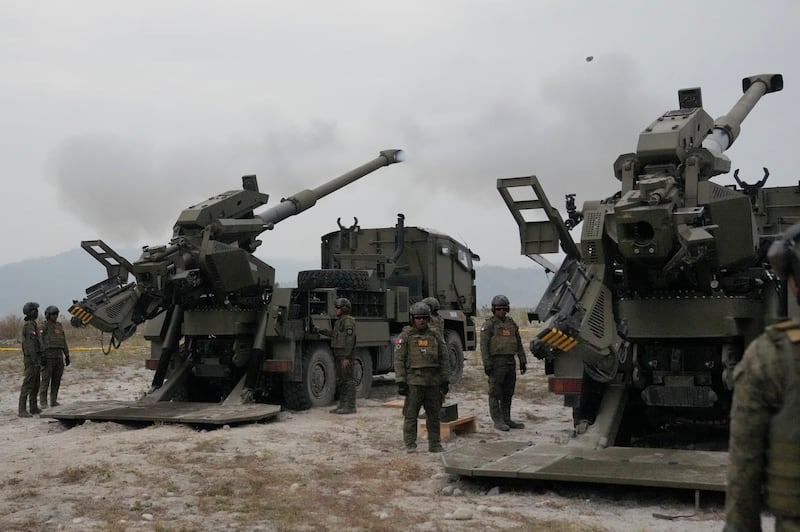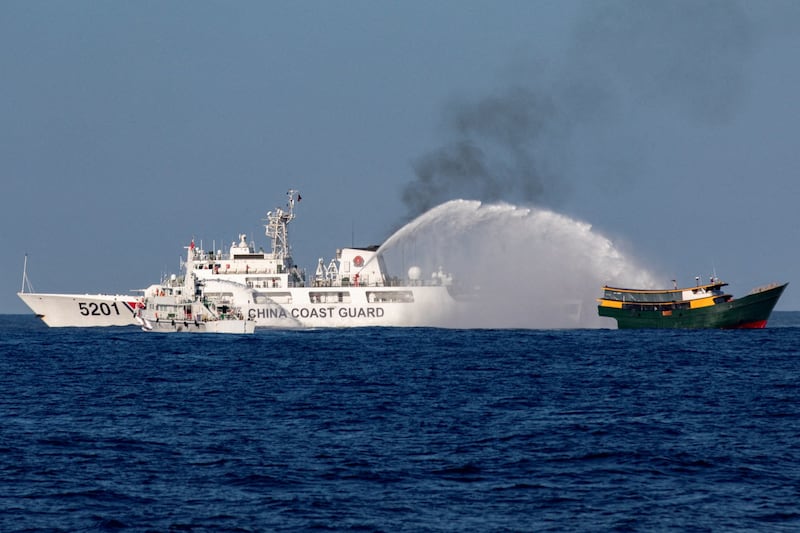China has slammed an annual Philippine-U.S. joint military exercise scheduled to begin next week, warning against “maritime provocations.”
More than 16,000 Filipino and U.S. troops are expected to take part in the joint exercise Balikatan (shoulder-to-shoulder), now in its 39th year but which for the first time will be conducted outside the Philippines’ territorial waters.
The territorial sea, measured 12 nautical miles from the shore, is where a coastal state has sovereignty and exclusive jurisdiction not only to the sea, but also to the airspace.
The U.S. Embassy in Manila calls this year’s exercise from April 22 to May 18 “our most expansive Balikatan yet.”
It said in a statement that the drills will include territorial defense and targeting simulated enemy forces in Luzon and Palawan, the areas facing Taiwan and the South China Sea.
Two countries – Australia and France – are sending troops to participate in Balikatan 2024 while 14 countries will attend as observers.

Chinese foreign ministry spokesperson Lin Jian told a press briefing in Beijing that Manila "needs to be fully aware that when countries outside the region are brought into the South China Sea to flex muscles and stoke confrontation, tensions could get worse and the region will only become less stable."
The exercise is an act of handing over the Philippines’ security to outside forces, Lin said, adding that it “will only lead to greater insecurity and turn oneself into someone else’s chess piece.”
The spokesman urged the countries involved in Balikatan 2024 to stop stoking confrontation in the South China Sea and said that China will continue to take necessary measures “to firmly safeguard our territorial sovereignty and maritime rights and interests.”
‘Not targeting any country’
Filipino officials on Thursday responded to China’s statement saying Balikatan exercises are “not directed towards any specific country.”
“This long standing initiative, spanning several years, is aimed at enhancing cooperation, fostering training opportunities, and strengthening regional stability,” Col. Francel Margareth Padillat, spokesperson for the Philippine armed forces, told BenarNews, an online news service affiliated with Radio Free Asia.
Balikatan 2024 is also aimed at testing the Philippines’ new defense strategy in order to protect the country’s interests in the South China Sea.
Past Balikatan exercises have been carried out inside military camps in northern Philippines and this year’s drills and locations indicate a shift in Manila’s defense priorities.
Col. Michael Logico, the Philippine Balikatan spokesman, said Balikatan 2024 will be conducted in accordance with the new Comprehensive Archipelagic Defense Concept, with focus on external security challenges, especially in the maritime domain.

Vessels from the Philippines and China have been confronting each other near some of the disputed islands in the part of South China Sea under Manila’s jurisdiction, called the West Philippine Sea by Filipinos.
The Philippine coast guard said its ships have been harassed and fired at with water cannons by the Chinese coast guard.
A U.N. arbitral tribunal in 2016 ruled in favor of the Philippines and rejected all China’s claims in the South China Sea but Beijing refused to accept the verdict.
Jason Gutierrez contributed to this report from Manila
Edited by Mike Firn and Elaine Chan.
